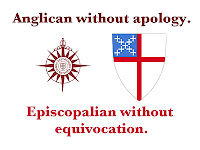As I've been ruminating on that, another piece of information crossed my computer screen--this time on evangelism. Author Frank Schaeffer talks about the desire and need of progressive former evangelicals for a community of faith to support them. Though one would think that the mainline church would be a good fit for such ex-evangelicals, most don't know that we exist. As he writes: "And what amazes me is the invisibility of the mainline communities when it comes to the literally millions of former evangelicals I know are out there." He goes on to ask a very pointed question:
Why aren't the mainline denominations pitching their churches' tolerant and noble humanistic and enlightened views about individual empowerment, community and spiritual rebirth to the spiritually disenfranchised on a larger scale? The examples I mentioned here show that religion -- even "church" -- can be presented in a way that works and draws young people in. As someone once said "Do you not say, 'There are yet four months, and then comes the harvest'? Behold, I say to you, lift up your eyes and look on the fields, that they are white for harvest" (John 4:35).
If the mainline churches would work for the next few years in a concerted effort to gather in the spiritual refugees wandering our country they'd be bursting at the seams.
 I think these two topics--shame and evangelism--are connected, and are connected in this way: we are secretly ashamed to admit that we are Episcopal Christians. As Dr. Brown noted, shame feeds on secrecy, silence, and judgement. The mainline church has thrived most when we have been obvious, outspoken, and open to other people. In other words, the church has thrived when it has had empathy with others, a sense of "Me, too!" in the struggles of the world. That is what the Incarnation is, God's "me, too!" response to the challenges we face.
I think these two topics--shame and evangelism--are connected, and are connected in this way: we are secretly ashamed to admit that we are Episcopal Christians. As Dr. Brown noted, shame feeds on secrecy, silence, and judgement. The mainline church has thrived most when we have been obvious, outspoken, and open to other people. In other words, the church has thrived when it has had empathy with others, a sense of "Me, too!" in the struggles of the world. That is what the Incarnation is, God's "me, too!" response to the challenges we face.So, how might we work on a "concerted effort to gather in the spiritual refugees wandering our country"? I can think of at least three things to do:
- Stop apologizing for what we are not and begin celebrating what we are. We are not a big, evangelical denomination with folks who can witness or quote scripture at the drop of a hat. We are a tradition that values scripture, tradition, and reason with a liturgical foundation.
- Stop doing good things in secret and begin to connect our faith more obviously with how we live our lives. Even if we don't necessarily think about it, we are formed by our beliefs, our (hopefully!) daily devotions, and our weekly worship. The good things we do are a natural expression of that faith. While we are somewhat humorously described as "Episcopal ninjas", people are not paying enough attention to simply "catch" our faith without our even mentioning it.
- Proclaim grace, not judgement, and do it often. There is a reason that books such as "Love wins" are best sellers and that Christianity is most often described as judgmental--we are far better at being sucked into the world's transactional way of doing things then we are in proclaiming the peculiar economics of grace. Rather than being embarrassed by a so-called "wishy-washy faith," we should be clear that our openness does not come from being unclear about our faith, but clear about God's love.
